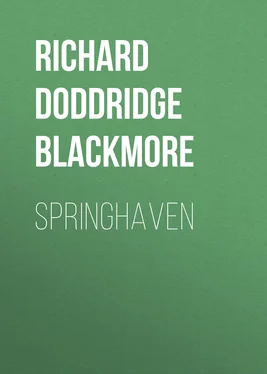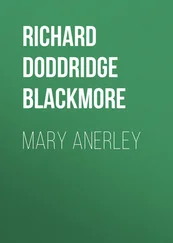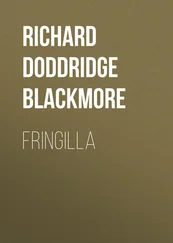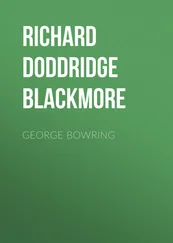Richard Doddridge Blackmore - Springhaven
Здесь есть возможность читать онлайн «Richard Doddridge Blackmore - Springhaven» — ознакомительный отрывок электронной книги совершенно бесплатно, а после прочтения отрывка купить полную версию. В некоторых случаях можно слушать аудио, скачать через торрент в формате fb2 и присутствует краткое содержание. Жанр: foreign_prose, История, foreign_edu, foreign_antique, на английском языке. Описание произведения, (предисловие) а так же отзывы посетителей доступны на портале библиотеки ЛибКат.
- Название:Springhaven
- Автор:
- Жанр:
- Год:неизвестен
- ISBN:нет данных
- Рейтинг книги:3 / 5. Голосов: 1
-
Избранное:Добавить в избранное
- Отзывы:
-
Ваша оценка:
- 60
- 1
- 2
- 3
- 4
- 5
Springhaven: краткое содержание, описание и аннотация
Предлагаем к чтению аннотацию, описание, краткое содержание или предисловие (зависит от того, что написал сам автор книги «Springhaven»). Если вы не нашли необходимую информацию о книге — напишите в комментариях, мы постараемся отыскать её.
Springhaven — читать онлайн ознакомительный отрывок
Ниже представлен текст книги, разбитый по страницам. Система сохранения места последней прочитанной страницы, позволяет с удобством читать онлайн бесплатно книгу «Springhaven», без необходимости каждый раз заново искать на чём Вы остановились. Поставьте закладку, и сможете в любой момент перейти на страницу, на которой закончили чтение.
Интервал:
Закладка:
By none, however, of these delights was the newly won lodger tempted. All that he wanted was peace and quiet, time to go through a great trunk full of papers and parchments, which he brought with him, and a breath of fresh air from the downs on the north, and the sea to the south, to enliven him. And in good truth he wanted to be enlivened, as Widow Shanks said to her daughter Jenny; for his eyes were gloomy, and his face was stern, and he seldom said anything good-natured. He seemed to avoid all company, and to be wrapped up wholly in his own concerns, and to take little pleasure in anything. As yet he had not used the bed at his lodgings, nor broken his fast there to her knowledge, though he rode down early every morning and put up his horse at Cheeseman’s, and never rode away again until the dark had fallen. Neither had he cared to make the acquaintance of Captain Stubbarb, who occupied the room beneath his for a Royal Office—as the landlady proudly entitled it; nor had he received, to the best of her knowledge, so much as a single visitor, though such might come by his private entrance among the shrubs unnoticed. All these things stirred with deep interest and wonder the enquiring mind of the widow.
“And what do they say of him up at the Hall?” she asked her daughter Jenny, who was come to spend holiday at home. “What do they say of my new gentleman, young Squire Carne from the Castle? The Carnes and the Darlings was never great friends, as every one knows in Springhaven. Still, it do seem hard and unchristianlike to keep up them old enmities; most of all, when the one side is down in the world, with the owls and the bats and the coneys.”
“No, mother, no. They are not a bit like that,” replied Jenny—a maid of good loyalty; “it is only that he has not called upon them. All gentlefolks have their proper rules of behaviour. You can’t be expected to understand them, mother.”
“But why should he go to them more than they should come to him, particular with young ladies there? And him with only one horse to their seven or eight. I am right, you may depend upon it, Jenny; and my mother, your grandmother, was a lady’s-maid in a higher family than Darling—it depends upon them to come and look him up first, and he have no call to knock at their door without it. Why, it stands to reason, poor young man! And not a bit hath he eaten from Monday.”
“Well, I believe I am right, but I’ll ask Miss Dolly. She is that sharp, she knows everything, and I don’t mind what I say to her, when she thinks that she looks handsome. And it takes a very bad dress, I can tell you, to put her out of that opinion.”
“She is right enough there:” Mrs. Shanks shook her head at her daughter for speaking in this way. “The ugliest frock as ever came from France couldn’t make her any but a booty. And the Lord knows the quality have come to queer shapes now. Undecent would be the name for it in our ranks of women. Why, the last of her frocks she gave you, Jenny, how much did I put on, at top and bottom, and you three inches shorter than she is! And the slips they ties round them—oh dear! oh dear! as if that was to hold them up and buckle them together! Won’t they have the groanings by the time they come to my age?”
CHAPTER XVIII
FRENCH AND ENGLISH
Admiral Darling was now so busy, and so continually called from home by the duties of his commandership, that he could not fairly be expected to call upon Mr. Caryl Carne. Yet that gentleman, being rather sensitive—which sometimes means very spiteful—resented as a personal slight this failure; although, if the overture had been made, he would have ascribed it to intrusive curiosity, and a low desire to behold him in his ruins. But truly in the old man’s kindly heart there was no sour corner for ill blood to lurk in, and no dull fibre for ill-will to feed on. He kept on meaning to go and call on Caryl Carne, and he had quite made up his mind to do it, but something always happened to prevent him.
Neither did he care a groat for his old friend Twemlow’s advice upon that subject. “Don’t go near him,” said the Rector, taking care that his wife was quite safe out of hearing; “it would ill become me to say a word against my dear wife’s own nephew, and the representative of her family. And, to the utmost of my knowledge, there is nothing to be said against him. But I can’t get on with him at all. I don’t know why. He has only honored us with a visit twice, and he would not even come to dinner. Nice manners they learn on the Continent! But none of us wept when he declined; not even his good aunt, my wife. Though he must have got a good deal to tell us, and an extraordinary knowledge of foreign ways. But instead of doing that, he seems to sneer at us. I can look at a question from every point of view, and I defy anybody to call me narrow-minded. But still, one must draw the line somewhere, or throw overboard all principles; and I draw it, my dear Admiral, against infidels and against Frenchmen.”
“No rational person can do otherwise”—the Admiral’s opinion was decisive—“but this young man is of good English birth, and one can’t help feeling sorry for his circumstances. And I assure you, Twemlow, that I feel respect as well for the courage that he shows, and the perseverance, in coming home and facing those vile usurers. And your own wife’s nephew! Why, you ought to take his part through thick and thin, whatever you may think of him. From all I hear he must be a young man of exceedingly high principle; and I shall make a point of calling upon him the first half-hour I get to spare. To-morrow, if possible; or if not, the day after, at the very latest.”
But the needful half-hour had not yet been found; and Carne, who was wont to think the worst of everybody, concluded that the Darling race still cherished the old grudge, which had always been on his own side. For this he cared little, and perhaps was rather glad of it. For the old dwelling-place of his family (the Carne Castle besieged by the Roundheads a hundred and sixty years agone) now threatened to tumble about the ears of any one knocking at the gate too hard. Or rather the remnants of its walls did so; the greater part, having already fallen, lay harmless, and produced fine blackberries.
As a castle, it had been well respected in its day, though not of mighty bulwarks or impregnable position. Standing on a knoll, between the ramp of high land and the slope of shore, it would still have been conspicuous to traveller and to voyager but for the tall trees around it. These hid the moat, and the relics of the drawbridge, the groined archway, and cloven tower of the keep—which had twice been struck by lightning—as well as the windows of the armoury, and the chapel hushed with ivy. The banqueting hall was in better repair, for the Carnes had been hospitable to the last; but the windows kept no wind off, neither did the roof repulse the rain. In short, all the front was in a pretty state of ruin, very nice to look at, very nasty to live in, except for toads, and bats, and owls, and rats, and efts, and brindled slugs with yellow stripes; or on a summer eve the cockroach and the carrion-beetle.
At the back, however, and above the road which Cheeseman travelled in his pony-chaise, was a range of rooms still fit to dwell in, though poorly furnished, and floored with stone. In better times these had been the domain of the house-keeper and the butler, the cook and the other upper servants, who had minded their duty and heeded their comfort more truly than the master and mistress did. For the downfall of this family, as of very many others, had been chiefly caused by unwise marriage. Instead of choosing sensible and active wives to look after their home affairs and regulate the household, the Carnes for several generations now had wedded flighty ladies of good birth and pretty manners, none of whom brought them a pipkinful of money, while all helped to spend a potful. Therefore their descendant was now living in the kitchens, and had no idea how to make use of them, in spite of his French education; of comfort also he had not much idea, which was all the better for him; and he scarcely knew what it was to earn and enjoy soft quietude.
Читать дальшеИнтервал:
Закладка:
Похожие книги на «Springhaven»
Представляем Вашему вниманию похожие книги на «Springhaven» списком для выбора. Мы отобрали схожую по названию и смыслу литературу в надежде предоставить читателям больше вариантов отыскать новые, интересные, ещё непрочитанные произведения.
Обсуждение, отзывы о книге «Springhaven» и просто собственные мнения читателей. Оставьте ваши комментарии, напишите, что Вы думаете о произведении, его смысле или главных героях. Укажите что конкретно понравилось, а что нет, и почему Вы так считаете.












